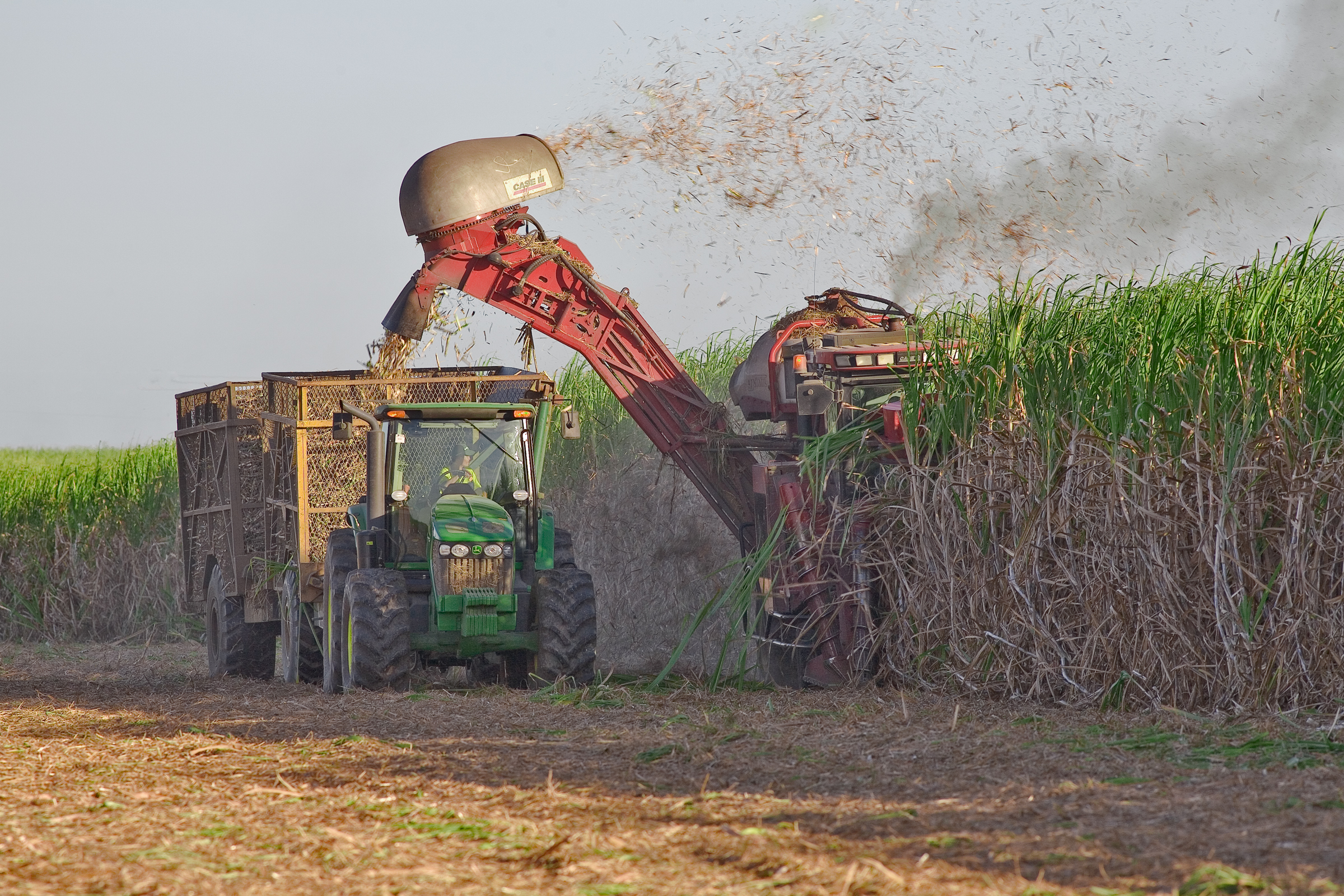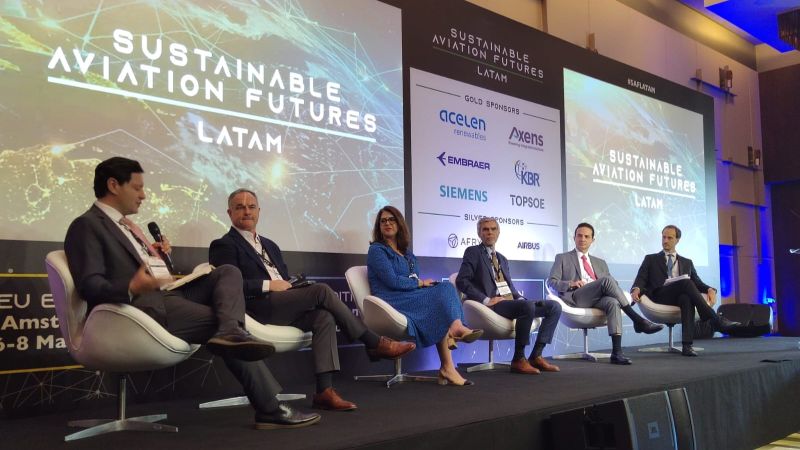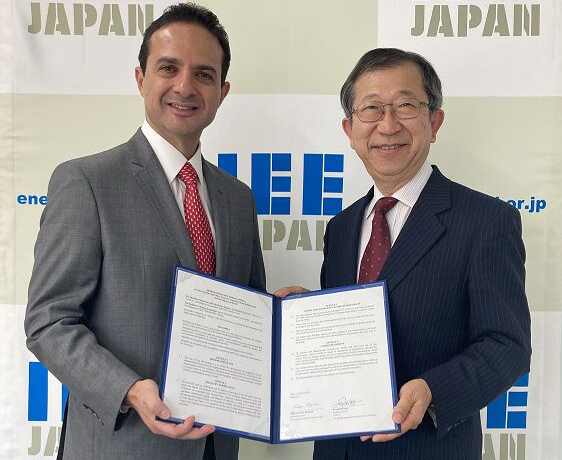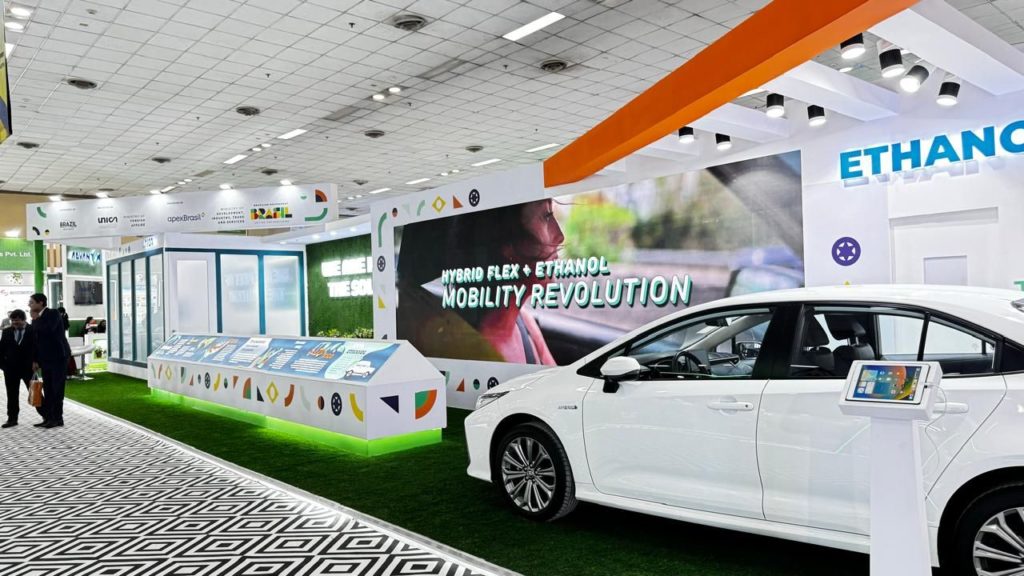
Bharat Mobility Global Expo is India’s premier mobility event, uniting government officials, corporate leaders, and industry experts to showcase the latest trends in the shift towards more sustainable and tech-driven transportation solutions. In collaboration with the Brazilian Trade and Investment Promotion Agency (ApexBrasil) and the Brazilian Embassy in New Delhi, the Brazilian Sugarcane and Bioenergy Industry Association (UNICA) presented and discussed Brazil’s experience as one of the world’s largest producers and consumers of ethanol at Auto Expo – The Motor Show 2025, a key event within the Bharat Mobility Global Expo 2025. Brazil’s participation is part of the Sugarcane Ethanol Project.
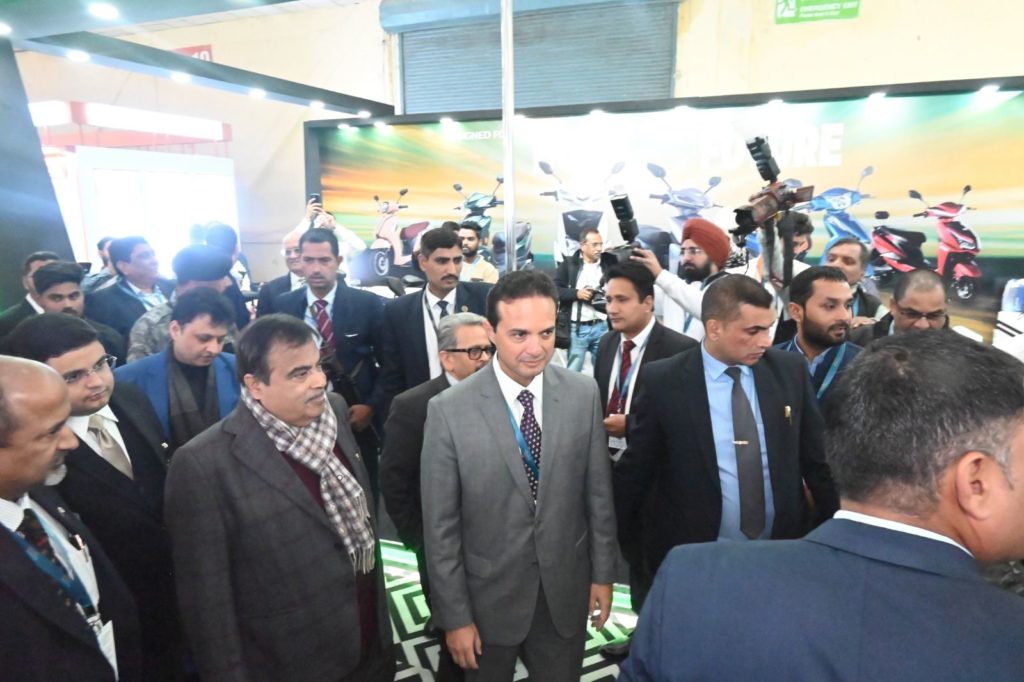
At the opening of the event on January 17th, UNICA’s booth, located within the Society of Indian Automobile Manufacturers (SIAM) Sustainable Mobility Pavilion, titled “People-Centric Mobility Ecosystem,” was visited by the Minister of Highways and Transport, Mr. Nitin Jairam Gadkari, alongside UNICA’s CEO, Mr. Evandro Gussi. At the booth, attendees had the opportunity to learn about Brazil’s extensive experience with ethanol, exploring its timeline and the value chain that supports socioeconomic development and sustainability. Featured at the booth was Toyota do Brasil’s hybrid-flex model, which combines an internal combustion engine powered by ethanol with an electric motor, offering high energy efficiency. Manufactured in Brazil since 2019, this vehicle features a system that automatically recharges without the need for external charging infrastructure, and it can travel twice as far on the same amount of fuel as a conventional car. A prototype of this vehicle model is being tested in India and has not yet been commercially launched.
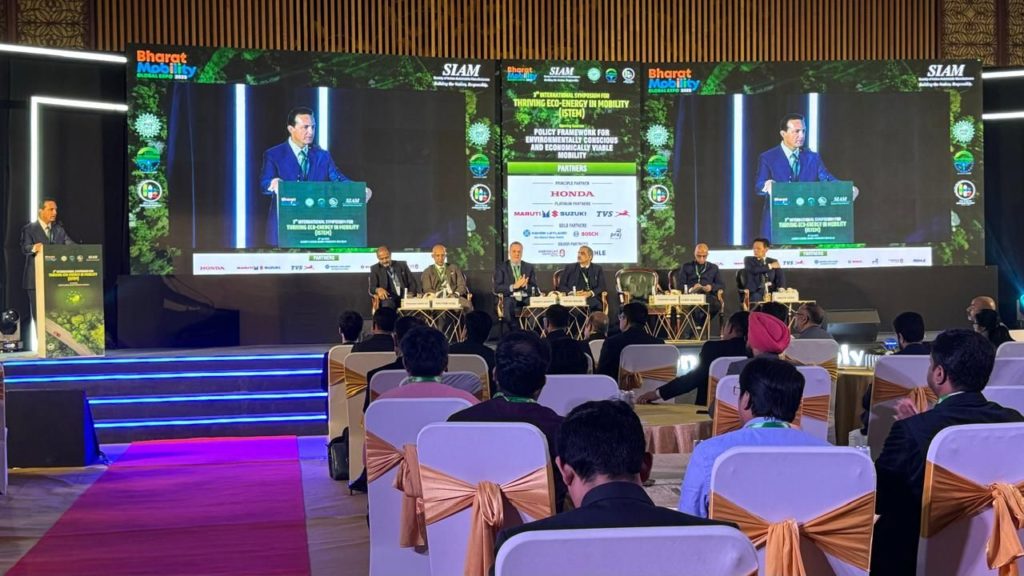
During the event, Mr. Gussi also participated in the 3rd International Symposium for Thriving Eco-Energy in Mobility (ISTEM), with the theme “Decarbonization Roadmap: Towards a Carbon-Neutral Future,” organized by SIAM. Here, he engaged in discussions on the critical role of biofuels and technological solutions in the global transition to a cleaner transportation sector. The event was attended by Mr. Hardeep Singh Puri, India’s Minister of Petroleum and Natural Gas, along with representatives from the automotive sector, the biofuel industry, and diplomats.
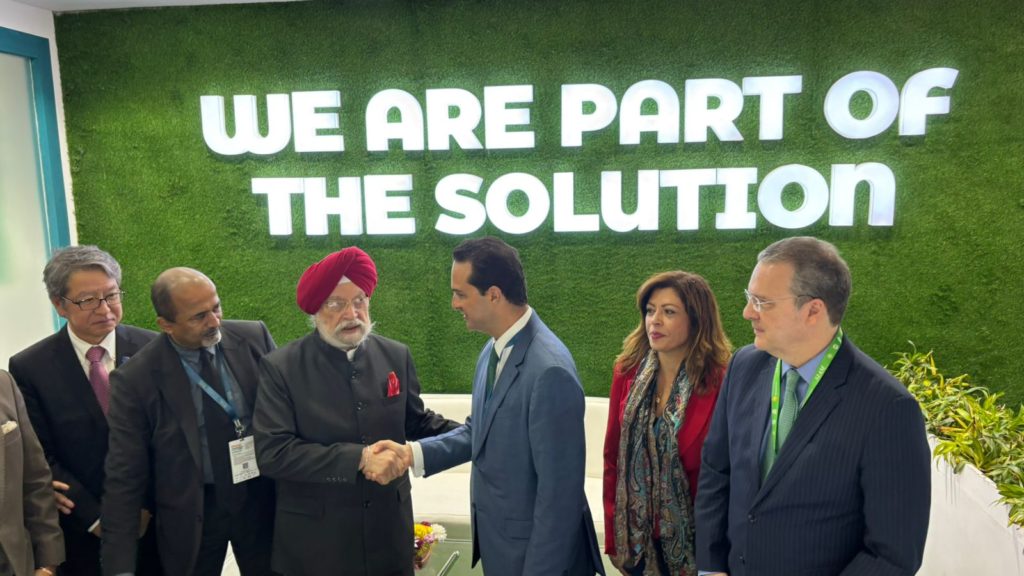
Minister Puri, who also visited Brazil’s stand at Auto Expo, expressed a keen interest in life cycle assessments as a method for evaluating the reduction of greenhouse gas emissions per kilometer driven by vehicles. This topic is one that could be explored further in a bilateral meeting involving Mr. Gussi, Mr. Kenneth da Nobrega, the Brazilian Ambassador to India, and Mr. Roberto Braun, Director of Communications at Toyota do Brasil. The agenda also included discussions on mobility-related public policies, such as Brazil’s “Combustível do Futuro” and “Mover” programs.
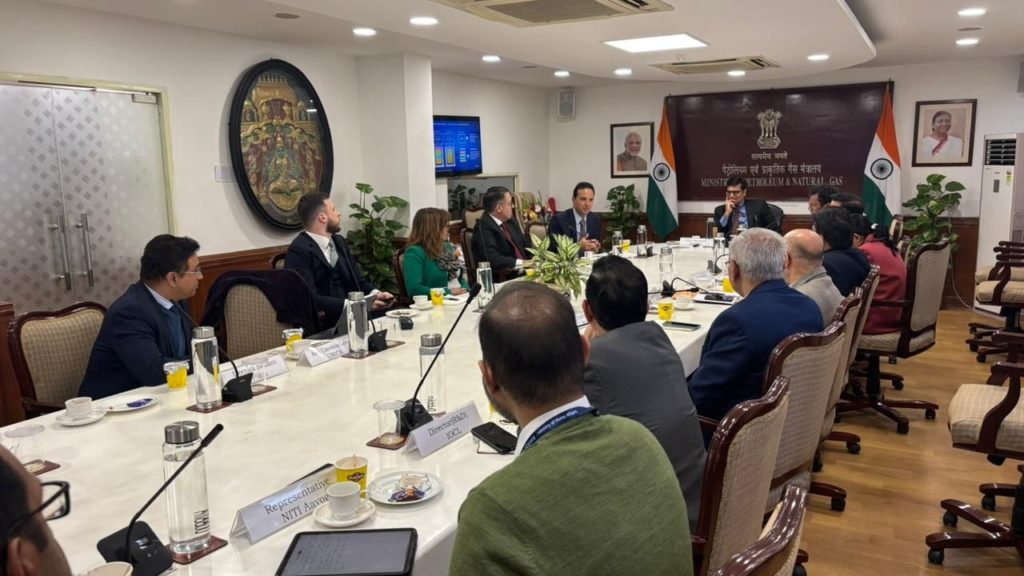
Another key highlight of the Brazilian delegation’s bilateral agenda was the meeting with the interministerial committee and the production sector, represented by Mr. Deepak Ballani, President of the Indian Sugar & Bio-energy Manufacturers Association. During the meeting, Mr. Gussi and Mr. Braun, alongside Mrs. Deborah de Oliveira Rossoni from ApexBrasil, discussed the future of the ethanol agenda and explored ways Brazil and India can collaborate to advance the development of this biofuel.
Brazil and India have been collaborating for over six years to exchange experiences and promote the increased use of biofuels. Through a partnership between UNICA, ApexBrasil, and SIAM, the two countries established an Ethanol Center of Excellence. This initiative aims to demonstrate how ethanol is a key component in the decarbonization process, showcasing it as a viable and replicable technology that can be adopted globally.
India has been making significant strides in the decarbonization of land transport, with the ethanol program being a key priority. The country recently announced an ambitious goal to increase the ethanol blend in gasoline to 20% by 2025-26. Additionally, flex-fuel technology has become a focal point for innovation and investment. At last week’s event, 19 flex vehicles, including cars and bicycles, were launched, all designed to run on up to 85% blended ethanol.
About Sugarcane Ethanol Project
ApexBrasil and UNICA made public in 2008, through the Brazilian Sugarcane Ethanol partnership, a strategy to promote the image of sugarcane products abroad, especially Brazilian ethanol as a clean and renewable energy. In 2023, the two entities signed an agreement that provides for shared investments.
The sectoral project aims to influence the process of building the image of ethanol and other sugarcane derivatives among the main global opinion makers – governments and the media, as well as trading companies, potential investors and importers, NGOs and consumers.
About ApexBrasil
The Brazilian Trade and Investment Promotion Agency (ApexBrasil) works to promote Brazilian products and services abroad and attract foreign investments to strategic sectors of the Brazilian economy. In order to achieve its goals, ApexBrasil carries out several trade promotion initiatives aimed at promoting Brazilian products and services abroad, such as prospective and trade missions, business rounds, support to the participation of Brazilian companies in major international fairs, visits of foreign buyers and opinion makers to learn about the Brazilian productive structure, among other business platforms that also aim at strengthening the Brazil brand. The Agency also acts in a coordinated way with public and private players to attract foreign direct investment (FDI) to Brazil with a focus on strategic sectors for the development of the competitiveness of Brazilian companies and the country.
About UNICA
UNICA is the main representative body for sugar, bioethanol and other bioenergy products from mills located in the Center-South region of Brazil. Currently, it has more than 120 associated companies, which represent 60% of the sugar and ethanol produced in the country. UNICA has its headquarters in São Paulo and Brasília, as well as offices in the United States and Europe.
